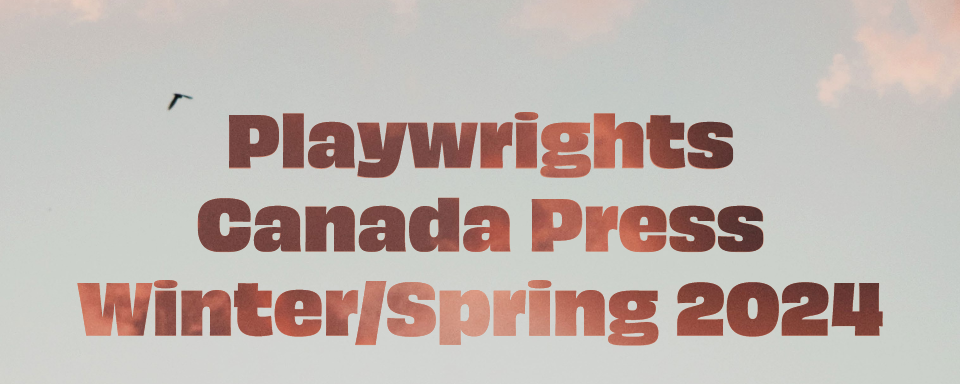
Coming in winter/spring 2024
It’s here! We're excited to reveal our upcoming winter/spring 2024 titles. Get a sneak preview of each book below, available for pre-order now with a 20% discount until December 15th. You can also take a more in depth look at our Winter/Spring Catalogue here. Happy reading!
Freedom: A Mixtape
Edited by Marcel Stewart with Suitcase in Point
Freedom: A Mixtape is a soulful artistic response to recent and historical violence on Black bodies, presented through a collection of original songs, stories, poems, anecdotes, spoken-word pieces, and musical instrumentation from folks living in the Niagara Region. A community conversation about our complicated relationship with emancipation and the human right to be free, Freedom: A Mixtape is a compilation album that is part protest and part celebration.
Everything I Couldn't Tell You
By Jeff D'Hondt
Revived from a coma after a traumatic event, Megan’s injuries leave her capable of great violence, forcing her desperate physician Cassandra to recruit Alison, an Indigenous clinician, as her consultant. Alison uses an innovative form of technologically enhanced expressive arts therapy to augment the rehabilitative effects of speaking Lenape, their shared (and almost extinct) language. Everything I Couldn’t Tell You is a potent reminder of the healing and rehabilitative power within Indigenous languages.
Black Boys
By Stephen Jackman-Torkoff, Tawiah M’Carthy, Thomas Antony Olajide with Virgilia Griffith, and Jonathan Seinen
Black Boys uncovers the complex dynamics of the queer Black experience. Text, movement, and design portray the rhythm and vulnerability of three very different Black individuals who seek a deeper understanding of themselves, each other, and of how they encounter the world. As they explore their unique identities, their performances rigorously interrogate and playfully subvert the ways in which gender, sexuality, and race are read and performed.
The Black Drum
By Adam Pottle
Hailed as the world’s first Deaf musical—told entirely in American Sign Language and Signed Music—The Black Drum revolves around Joan and her journey to healing after the death of her wife, Karen. Joan’s grief pulls her into a bizarre, black-and-white world where her two beautiful tattoos come to life as guides and together they confront a monster called the Minister. But the only way to defeat the Minister and begin to heal is for Joan to embrace her own voice.
Frozen River (nîkwatin sîpiy)
By Michaela Washburn, Joelle Peters, and Carrie Costello
Exploring reconciliation and connection through a story that spans seven generations, Frozen River (nîkwatin sîpiy) tells the story of two eleven-year-olds through the eyes of Grandmother Moon. Coming from vastly different worlds, Eilidh and Wâpam decide to teach each other about their ways of life. But when a sacred promise between them is broken, the relationship among cultures becomes jeopardized for generations to come.
The Green Line | خطّ التماس
By Makram Ayache, Arabic translation by Hiba Sleiman
In 1978, in the midst of the Lebanese Civil War, Naseeb is attempting to get himself and his sister Mona out of Beirut and into the safety of the mountains. In the present day, Rami, a twentysomething queer Lebanese Canadian, has returned to the Lebanese mountains to bury his father. A poetic, heartbreaking story of intergenerational queer history in Lebanon, The Green Line | خطّ التماس follows one family’s journey to discover their past.
Ravage of Life
By Evelyne de la Chenelière, translated by Louise H. Forsyth
For three years, Evelyne de la Chenelière wrote on the long entrance wall in Montreal’s Espace GO as part of an artistic residency that would profoundly shake her outlook on words, theatre practice, and writing. The culmination of this is Ravage of Life, a bold departure from prevailing norms where the playwright breaks with written and performative conventions in her dramatization of an endless and multi-faceted instant between life and death.
cockroach (曱甴)
By Ho Ka Kei (Jeff Ho)
You can call him Cockroach, or Roach for short. He’s a catnip-smoking city slicker living in the dark corners behind the toilet. After diving into the diaper of a Chinese baby, Cockroach watches the boy grow up to lose his sense of identity. A unique exploration of xenophobia and the dangers of language erosion, cockroach (曱甴) is a coming-of-age play about the stories we tell ourselves to comfort, to survive, to resist, to overcome, and to be.
Fall On Your Knees
Adapted for the stage by Alisa Palmer and Hannah Moscovitch, co-created and written by Hannah Moscovitch, co-created and directed by Alisa Palmer, adapted from the novel by Ann-Marie MacDonald
In an adaptation of the classic Canadian novel, this epic play follows three generations of a Cape Breton Island family in a tale of forbidden love, inescapable bonds, and devastating betrayals, all while harbouring secrets that threaten to shatter the family entirely. A richly layered story by turns both heartbreaking and joyous, Fall On Your Knees is a vivid portrayal of love, desire, and the quest for truth and redemption.
I Forgive You
By Scott Jones and Robert Chafe
In October 2013, Scott Jones was leaving a bar in New Glasgow, Nova Scotia, when he was attacked, stabbed in the back, and left paralyzed from the waist down. In the months following his attack, Scott Jones’s story garnered international attention, not only for its brutality, but also for his uncommonly early decision to forgive his attacker. Based on the incredible true story, I Forgive You explores the complexities of forgiveness, privilege, recovery, and self-love.
Staging Coyote's Dream Volume 3
Edited by Monique Mojica and Lindsay Lachance
On the twentieth anniversary of its first volume, Staging Coyote’s Dream Volume 3 is a curated collection of new works rooted in Indigenous values, aesthetics, and narrative structures. Inspired by their own dramaturgical practices and current conversations in contemporary theatre creation, co-editors Monique Mojica and Lindsay Lachance identify the invaluable and understudied ways that many Indigenous theatre artists are creating culturally specific dramaturgical processes and shifting the paradigm for what is considered “text.”
The Party & The Candidate
By Kat Sandler
In these two entwined, fast-paced plays, the hilarious goings-on behind the scenes of a controversial election chaotically unfold first at the fundraiser that will decide the party’s nominee and then months later at a debate the night before the election. With a large cast of frenzied characters and piercing dialogue, The Party & The Candidate will make sure you never look at politics the same way again.
Espejos: Clean
By Christine Quintana, adapted and translated into Spanish by Paula Zelaya-Cervantes
The lives of two women from very different worlds collide in the illusionary paradise of a Mexican resort. Sarah, a Canadian wedding guest, is a shot glass half empty. Adriana, a fastidious and vivacious hotel floor manager, finds solace in establishing order. At first glance, they’re simply animated, but looking closer reveals the anxieties they’re trying to hide. When their worlds collide, everything they’ve kept hidden comes into sharp focus.
PLAY: Dramaturgies of Participation
By Jenn Stephenson and Mariah Horner
From escape rooms to TikTok to Tim Horton’s “Roll Up the Rim to Win” to DIY everything, participatory performance is ingrained in the very fabric of our contemporary society. Written in a series of alphabetical, standalone mini essays that activate the reader as a participant who chooses their own path, PLAY: Dramaturgies of Participation collects, describes, and analyzes live performances in which the audience become participants in the piece itself.
Power Moves: Dance, Culture, Politics
Edited by Seika Boye and MJ Thompson
This collection of essays focuses on how dance and movement engage and enact political questions around agency, mobility, pedagogy, and resistance. Committed to crossing disciplinary boundaries, Power Moves looks to movement knowledge for its radical insights and critical forms of public intervention and pedagogy.
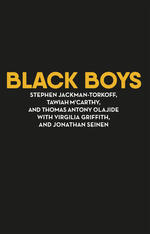
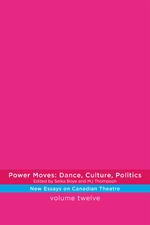
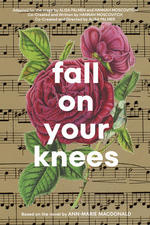
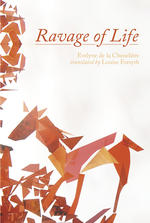
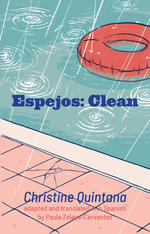
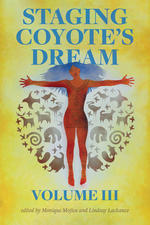
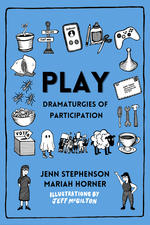


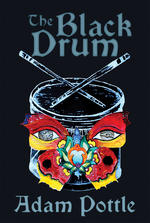
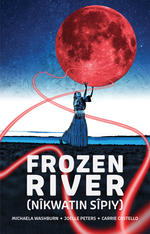

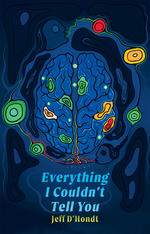
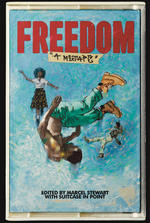
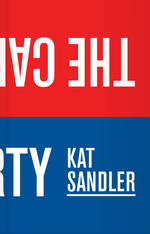
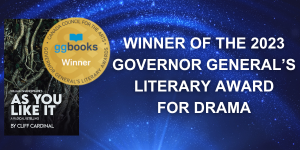
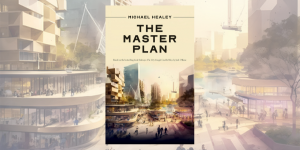
Comments